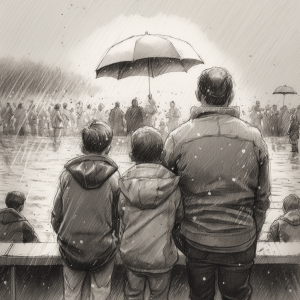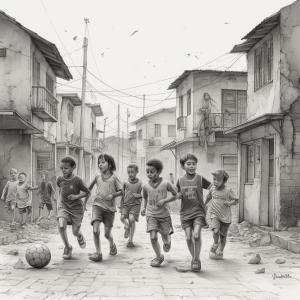Soccer players and coaches who struggle in the sport come from all ages, religions, social background and levels of education. But do you know what they all have in common?
Don’t take offence to this if you’re one of them, but statistics, research and history don’t lie.
Each player or coach who struggles is defeated, slapped and beaten mentally. Each one has encountered situations that have either destroyed them or conquered them. These players or coaches are easily recognized.
Each one is eager, even anxious to tell you about the situation or scenario that destroyed them. How it was bad luck. How this and how that. It reads like a horror movie that starts off well and ends in tears.
Don’t be scared, alarmed or surprised; this is part of the soccer experience.
“The coach dislikes me”
“The coach dropped me”
“They sacked me because….”
The above list is only limited by your own imagination and excuses. Go ahead, have a go.
For all those soccer parents that think this doesn’t apply to you, I’ve got news for you. Let’s take a young player for an example, let’s even suggest that this young player is your son. As your child grows and develops there will come a time when your child will outgrow those soccer clinics. Now it’s time for junior soccer.
What would happen if the clinic your child attended was hosted by coaches who were only in it for the money?
“Has beens” that had no idea about coaching kid’s soccer.
Coaches that used intimidation or fear to instruct their training sessions.
Before you hand over your hard earned money, I’ll tell you what you can expect if the coach is incompetent. Your child will develop what I call “unhealed wounds”. Wounds in the form of fear, lack of confidence and lack of self esteem.
Ask the necessary questions,
- Did they get enough personal attention?
- Did they develop the necessary skills?
- Did the coach instill fear in them?
- Did the coach yell at them?
These scenarios or lack of them creates wounds that will inevitably defeat your child. If your child happens to survive these clinics and doesn’t quit before junior soccer, this is what will happen.
Your child has unhealed wounds suffered from the clinics you paid for. These clinics have not only influenced your child, but have altered behavior patterns. Now your child is super cautious. Instead of bursting with energy, he now plods along, ducking any new challenges or anything new. Remember your child gets conditioned every day the same way we all do.
Your child has lost the sense of enjoyment and also feels the pain of being pressured and defeated. Now in junior soccer, your child hides amongst the other players. Can your child excel in soccer if he plods along or hides amongst the team? Will he ever reach his potential? Has your child been defeated?
Have you as a parent, surrended to defeat, but in a reasonably clean, socially, accepted way? If you have wake up!
So what is the difference between players that go on to play professionally?
Kids that excel have been protected from most of the negatives the game has to offer. They have all been instructed by good, solid coaches that have years of experience and are aware of the many pitfalls.
Apart from the coaches and the environment do you know what separates the successful kids from the kids that will inevitably quit? It’s not a poor home, rich home or a broken home. These are all bullshit excuses because I’ve experienced all 3. It’s definitely not age, intelligence, background, nationality or any other excuse you can conjure up. The one thing you can’t match them on is their response to defeat.
A kid that struggles and is not protected by their parents through awareness, will get knocked down and fail to get back up again. They will lose hope and faith. They will get scared and they will want to quit. Remember statistics don’t lie, its fact.
But what happens when kids that are in the right environment, have a great coach and have parents that are supportive and aware of the pitfalls? What’s the difference?
The difference is when these kids get knocked down they bounce straight back up. Everyone involved learns a lesson and forgets about the setback while moving to the next challenge. They don’t plod at training. They don’t hide amongst the other players and they definitely don’t become scared.
The one tip I keep repeated is this,
“Read the biographies and autobiographies of great people, not just soccer players. What you will discover is that each of these people could have surrounded to setbacks many times. What you will realize when you probe into their lives is that each individual has overcome big, real and difficult obstacles.
Believe it or not, you cannot achieve soccer success without meeting opposition, hardship or setbacks. The idea is to use these setbacks to propel yourself forward.
When a setback hits us personally, what’s the first reaction? Our first impulse is often to become so angry and so emotionally upset that we fail to learn any lesson. If you play soccer and have never experienced a set back I can guarantee you with 100% confidence that you’re not going to play soccer at the highest level.
In order to grace the best pastures in the world, you need to leave your comfort zone and lick and heal all those “unhealed wounds”. Turn all the negatives and setbacks into victories and learn from your mistakes. These are invaluable lessons that will allow you to look back at defeat and smile.
Each defeat teaches you something new. At the end of the day, what is defeat? Don’t look at the scoreboard; I’m not talking about the scores. Defeat is only a state of mind and nothing more.
Everyone is quick to accept full credit for victories and success. When we succeed or win, we want the whole world to know about it, don’t we? But we are equally quick to blame someone else for each setback or problem. What the punters don’t understand is this; everything in the world of soccer is designed to trip us. Bad luck, bad timing, bad genes, bad coaches, injuries and the list goes on. But the sad truth is that more often than not we trip ourselves.
The soccer journey is lost because of personal mistakes.
I know what you’re thinking, enough already. So how do we combat this?
For starters, be objective. Put yourself in front of the mirror and look at yourself as a disinterested third party would look at you. What are your weaknesses? You can’t lie to yourself, can you?
The problem is that many players become so accustomed to themselves that they fail to see ways for improvement. When dealing with your kids, you are the mirror. The same principles apply.
Being self critical is constructive. It helps you to build strength and confidence needed to conquer soccer. Blaming others or a situation is destructive. What do you gain from “proving” that someone else is wrong?
What ever you do, don’t run away from your inadequacies because they will always find you. Seek out your faults, weaknesses and bad conditioning and correct them.
But remember this also, when you analyze your game or your child’s game, don’t try to find faults so you can say to yourself
“geez, another reason why I’m never going to make it”. Instead view your weaknesses as another way to make you stronger, bigger and wiser. The majority of players blame luck or timing for their failures. Have you heard these?
“That’s the way the cookie crumbles”.
“That’s the way the ball bounces”.
By blurting out bullshit slogans or clichés what do you gain? What do you learn?
Don’t explain your failures as bad luck. “Bad luck”, are you joking? Are you looking for sympathy? Grow some balls and be realistic. Stop blaming luck because luck will get you no where. Also a quick warning to players and parents, any soccer coach who takes a loss with,
“well, sometimes that’s the way the ball bounces” should be alarmed. Any coach that believes this is a monkey and is incompetent. Am I being too harsh?
The statement makes no sense at all. Balls don’t bounce in certain ways for no reason. The balls journey or bounce relies on 3 things.
- The ball (player)
- The way its thrown (training, coach)
- The surface it hits (environment, atmosphere).
Physics and science don’t lie my friends. Physical laws explain the bounce of a ball, not luck or the incompetent coach.



Leave a Reply